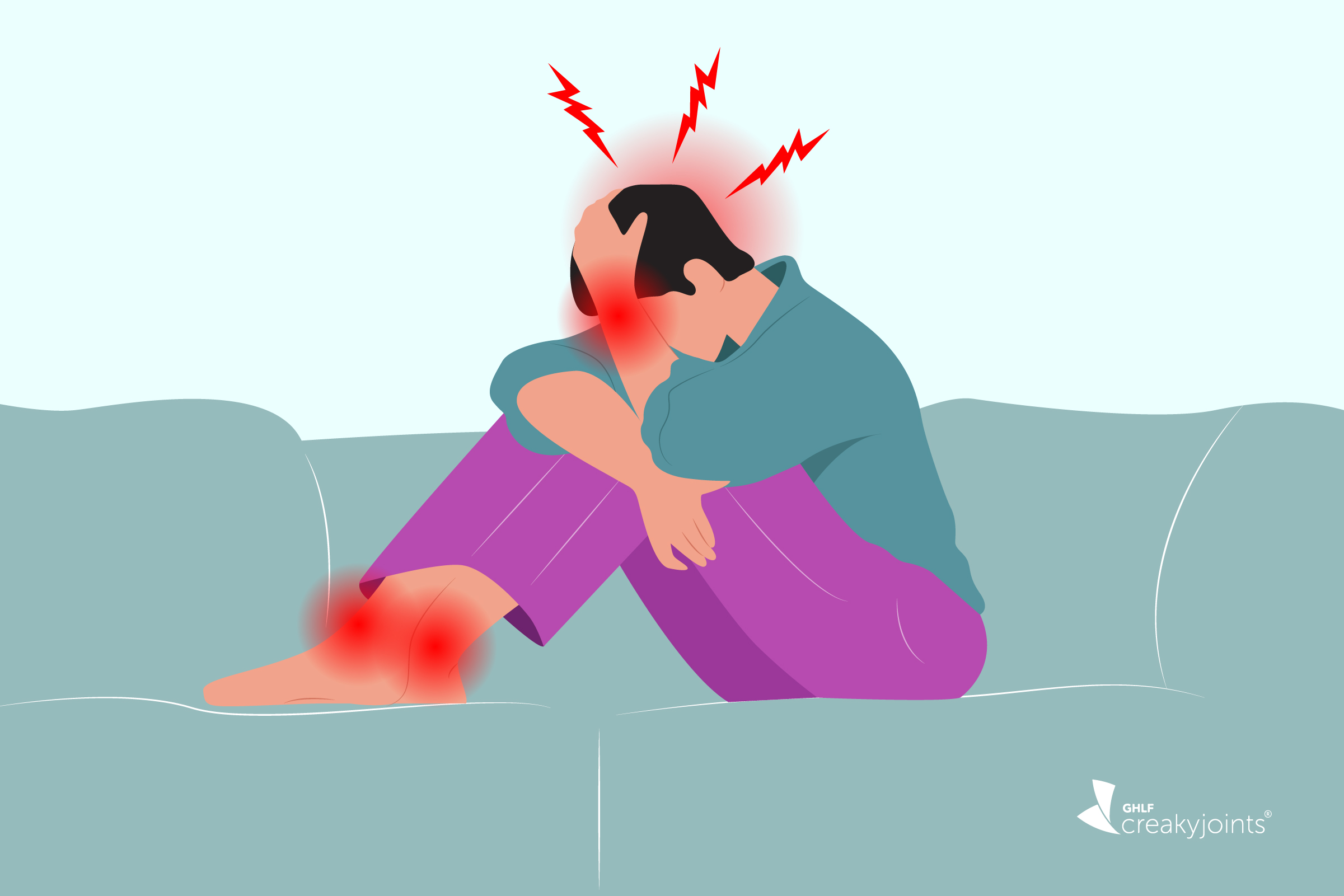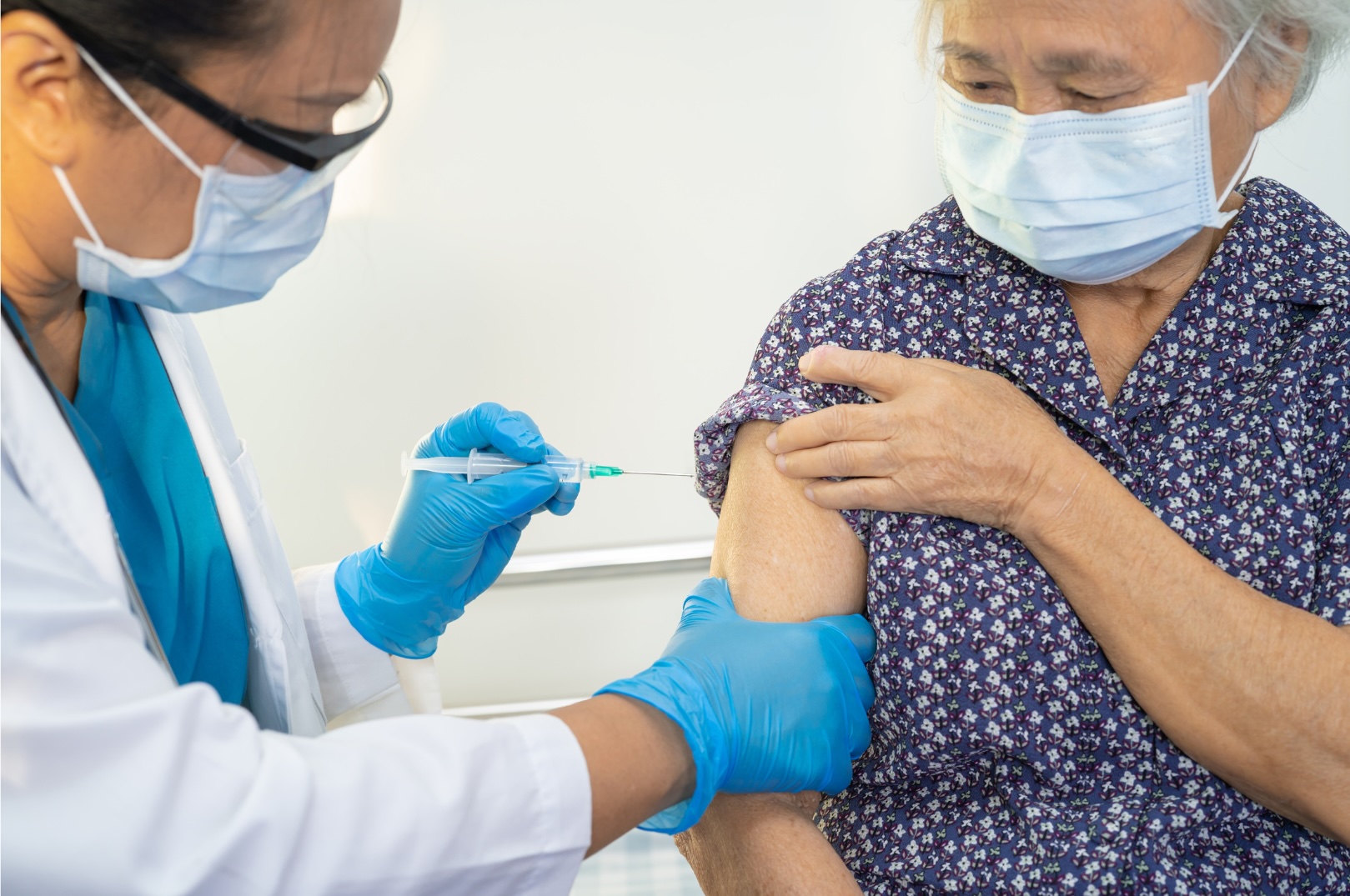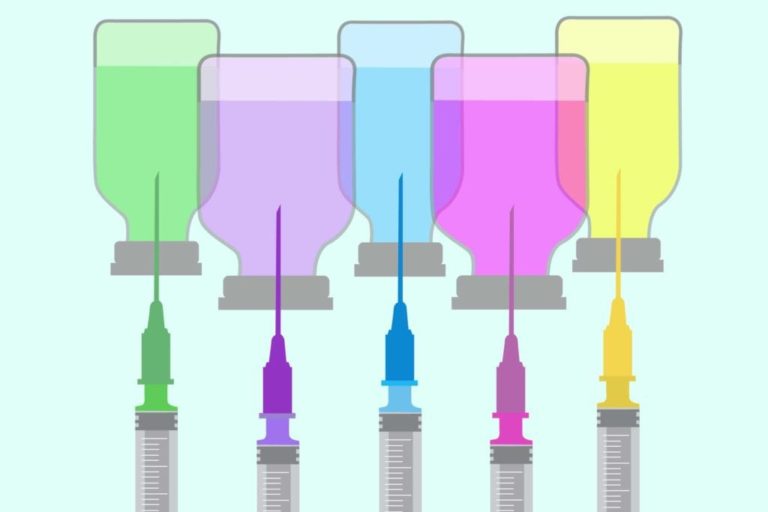Enhancing Adult Vaccine Uptake: Challenges in Shared Clinical Decision Making and Risk-Based Recommendations
Your Vaccine Conversation Guide: Making Informed Choices with Chronic Illness
Your Vaccine Conversation Guide: Making Informed Choices with Chronic Illness
This guide will help you talk about vaccines with your provider, understand the benefits and risks, and make the best choices for your health.
October 11, 2024
GHLF STAFF

For those with chronic illnesses or weakened immune systems, infections like COVID-19, flu, and RSV can feel even scarier. Staying up to date on vaccine recommendations and working with your health care team can help keep you safe. This guide will help you talk with your doctor about which vaccines are right for you, so you can feel confident making choices that protect your health.
Starting the Conversation
Taking charge of your health by talking openly with your provider can help you get the best care. Here’s how to start the vaccine conversation:
- Be direct: Start with a clear question, like, “What vaccines should I get for my condition?”
- Share your worries: If you’re concerned about side effects, medicine interactions, or vaccine myths, bring them up. Your provider can give you the facts and help you feel better about your choices.
- Involve loved ones: Bring a family member or friend into the conversation. Sharing your vaccination plan with them can help them understand how they can support you and protect your health.
“Your health care provider should know your medical history before recommending vaccines,” says Robert Popovian, PharmD, MS, Chief Science Policy Officer at Global Healthy Living Foundation. “It’s essential that pharmacists and physicians, particularly those outside of primary care, have the full picture to make informed decisions, especially when access to comprehensive medical records can be limited.”
Ask About Benefits and Side Effects
Knowing the benefits and risks of a vaccine can help you make the best decision, especially if you have a chronic illness. Asking these questions can help you and your provider find what works for you:
- Why is this vaccine important for me? Ask how the vaccine can protect you from severe illness, prevent complications, and reduce the risk of other health issues.
- How does it help the community? Vaccination protects you and others by reducing the spread of disease.
- What are the possible side effects: Some vaccines can have side effects, especially for those with chronic illnesses. Ask about what to expect.
“Vaccines are a crucial line of defense, especially for those with chronic conditions,” says Dr. Popovian. “While some people may have mild side effects — like soreness or a slight fever — these are usually much less intense than the symptoms of the actual illness. Getting vaccinated helps you avoid the most serious effects of disease, keeping you and others protected in the long term.”
Discuss Timing and Location
Picking the right time and place for your vaccination can make things easier, especially if you have treatments or a busy schedule. Here’s what to ask:
- When is the best time? Timing matters, especially if you’re on medications or have treatments planned. Ask your provider about the best time to get vaccinated for the most benefit.
- Where should I go? Your provider can suggest a convenient place, like a doctor’s office, clinic, or local pharmacy, so it fits into your routine.
Tip: Many pharmacies offer walk-in appointments, which is helpful if you need flexibility.
Check on Extra Precautions
If you have a chronic illness, taking a few extra steps can help make sure your vaccination is safe and effective. Here’s how to prepare:
- Medication interactions: Ask if your medications could affect the vaccine or increase side effects. Your provider can advise if you need to adjust any doses around the vaccination.
- Aftercare: Find out what to expect after getting vaccinated, like side effects and how to manage them. For some chronic conditions, certain aftercare steps can make recovery easier.
- Hydration and rest: Staying hydrated and resting after the vaccine can help your body process it better.
“Understanding aftercare is just as important as the vaccine itself,” says Dr. Popovian. “Patients should know how to watch for side effects and when to get follow-up care.”
Stay Informed
Keeping track of your vaccinations and follow-up needs will help keep you protected. Here are some ways to stay organized:
- Schedule follow-ups: Some vaccines need multiple doses. Make sure you know what’s needed to stay protected.
- Keep a record: Use a health app or journal to note which vaccines you’ve received and any side effects. This helps you and your health care team monitor your health.
- Lean on your pharmacist: Pharmacists can access your vaccination records and give advice on staying up to date. They can also coordinate with your provider to keep you on track.
- Stay updated with CDC guidance: Vaccine recommendations may change. Check the Centers for Disease Control and Prevention (CDC) website or ask your provider to make sure you’re informed on recommended vaccines for your condition.
Taking Charge of Your Health Journey
Learning about your vaccination options and working with your care team puts you in control of your health. By talking with your provider, you can make choices that fit your needs. Stay proactive and keep the conversation going with your health care team to stay on top of your vaccination plan.
“Your provider should be a partner in this process,” says Dr. Popovian. “By staying informed and asking questions, you can feel confident in your vaccination journey.”
Informed Immunity
Informed Immunity is a podcast series dedicated to providing clear, evidence-based information on vaccines and public health. Within these episodes, we dive into essential topics like the importance of community and equity in immunization, debunking common vaccine myths, navigating the health care system, and the latest advancements in vaccine research. Our goal is to empower listeners with the knowledge they need to make informed health decisions. Listen now.
This article was made possible with support from GSK.
Source:
SUBSCRIBE TO GHLF
RELATED POST AND PAGES
_
Was this article helpful?
YesNo






